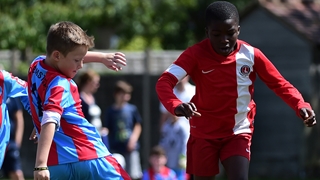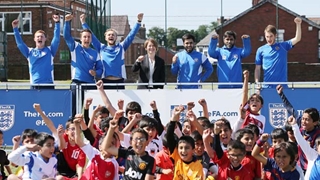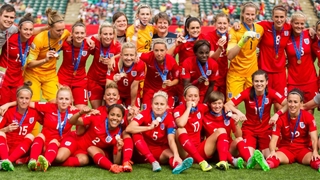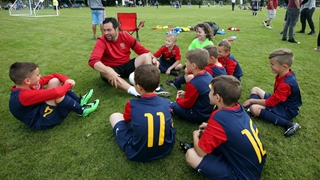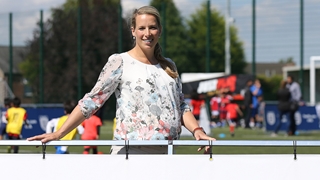
The recently-retired England goalkeeper was in her home county of Lancashire on Wednesday for the launch of the new FA National Game Strategy, with an investment of over £260m going into the grassroots game over the next four years.
And part of that will be put towards building on the progress since the last Strategy, with 40,000 more women and girls now playing football over the last two years.
"It’s a then-and-now scenario, and it’s very, very different," Brown-Finnis told TheFA.com.
"Not only are there far more girls participating across a wide range of levels at a young age, there’s also the elite pathway that has been created in the last 15 years, which I’ve been involved with.
"It’s wonderful to see where it’s at and it’s wonderful to see the continued vision of The FA and how they see it in a few years."
The success of England at the Women’s World Cup in Canada earlier this summer, when Mark Sampson’s side finished in a best-ever third position has seen the popularity of the women’s game increase further.
With higher attendances in The FA WSL and a record crowd at Wembley for the Women’s FA Cup Final earlier this month, it is hoped that this can translate into more participation for girls at grassroots level.
And the former Everton goalkeeper, who started her career as a schoolgirl with Accrington Stanley before enjoying spells in the USA and with Liverpool, believes the good work already done in the women’s game provides a strong base on which to build.
"The success of the Lionesses hasn’t happened overnight, that’s been a part of the investment of The FA," added Brown-Finnis, who earned 82 caps.
"When I first started playing and made my England debut in 1997, we were way off the pace as a national team and had no hopes of doing anything.
VIDEO: Ex @England keeper @rach_brown1 says #NationalGame Strategy plans to increase female coaches will be welcomed https://t.co/AaliS3CVnG
— The FA (@FA) August 13, 2015
"It’s only been that structure and investment over a 25-year period that has started to come to fruition and continues to do so.
"But it has to start with growing the pool of talent that the national team at the elite level can pull from so if we can keep growing that and then develop our talent at international level, then that’s going to help with pushing women’s football.
"They become almost celebrities and role models for the younger generation and encourage more girls and women to get involved and it’s that cycle which we want to continue with."
The topic of female coaches is also another matter which the new Strategy aims to address, with a bursary scheme in place to help more women get their qualifications.
"We need to have more female coaches," added Brown-Finnis.
"Hearing about the bursaries that are going to become available is great news, not just for the women’s side but for football specifically.
"It’s the same in coaching and refereeing, if there are women in the spotlight in these roles, it’s only going to inspire girls to become involved in football and realise that there are opportunities."
For more information on the new National Game Strategy, click here.




